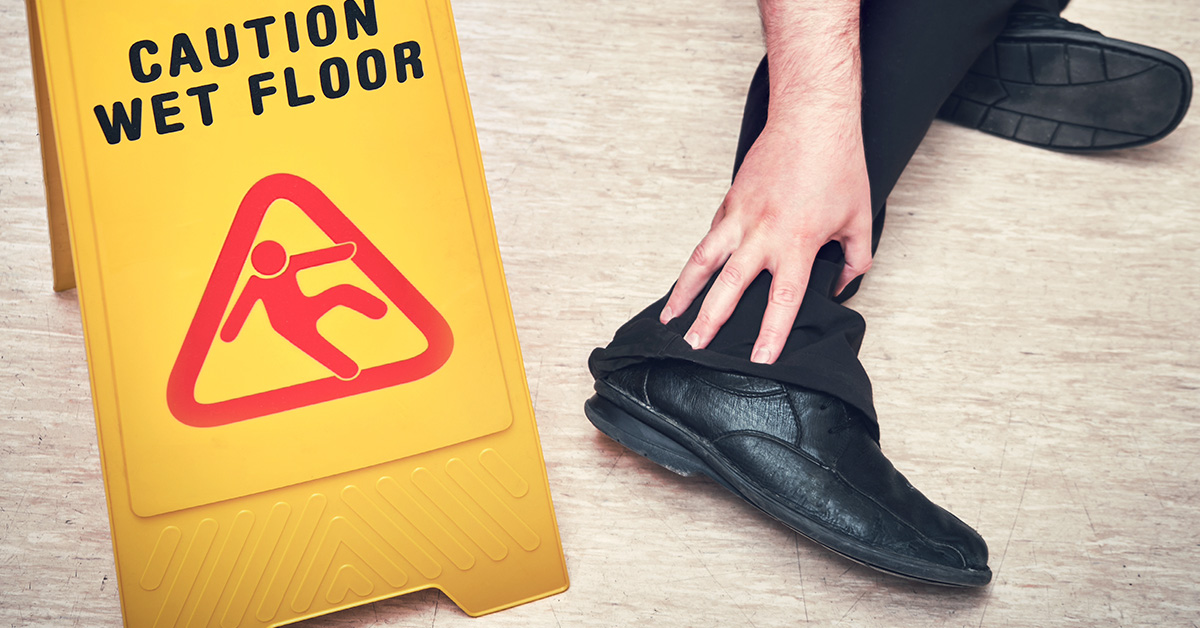In dealing with Public Liability personal injury cases, what stands out is how seemingly trivial or simple the cause of lifelong injuries can be. Indeed, few would leave their house too concerned that some spilt milk at the supermarket may change their life forever.
The question is, if you slip and fall in commercial premises, such as a supermarket or retail store, do you have a right to claim compensation for your injuries?
Duty of care
When you enter commercial premises, the business owner assumes a duty of care for your safety. That means they agree to take all reasonable measures to ensure your safety, and therefore should be liable for any injuries they could reasonably have prevented.
The term ‘reasonable’ comes up a lot in the law and is, by its very nature, ambiguous. What is clear, however, is that ‘reasonable’ does not mean ‘perfect’; as such, owners or occupiers of premises need not ensure their premises are perfectly safe or free of all possible hazards. Therefore, the presence of a hazard or safety risk itself does not automatically equate to negligence.
So it needs to go a little beyond this. Let’s we’ll use the example of spilt milk to demonstrate.
While it would likely be negligent if spilt milk sat in the middle of a supermarket aisle for many hours without employees cleaning it up, it probably wouldn’t be negligent if a customer spilled the milk five seconds before someone slipped on it.
Indeed, it would not be reasonable for the supermarket to have a system in place to ensure every hazard is immediately removed. Rather, it would need to be asked whether there was sufficient time for the hazard to be identified and removed – if so, then fault could likely be attributed.
Ultimately, what’s negligent will come down to the individual facts of a case, and will need to consider a range of factors including:
- What was the likelihood of this hazard causing injury?
- How bad would the injury be if the risk eventuated?
- Was a system in place to warn of and prevent risk of injury?
- Were there warning signs or other protective measures used?
- How easy, timely and cost effective were these protective measures?
- Was the injured person at fault, and, to what extent?
Were you injured?
Establishing negligence is only one half of the equation and to justify the bringing of a claim for compensation, a person must have also suffered an injury of sufficient severity.
Under the Wrongs Act, to claim compensation for your pain and suffering and loss of enjoyment of life, it must be established that you have suffered a “significant injury” of more than 5% whole person impairment for physical injuries or more than 10% for psychiatric injuries.
This is determined by an specialist doctor once your injuries have stabilised.
If you do not reach this threshold your claim would be limited to pecuniary (economic) losses only, which can often be insufficient to justify the bringing of a claim.
So what should you do?
If you fall and suffer injury in a commercial premises, the most important things to do is take photos and get the contact details of any witnesses. Sometimes these comprise the only contemporaneous evidence of what caused the fall.
You should notify the business of what occurred, and if they complete an incident report explaining the circumstances of the fall, be sure to seek a copy.
Commercial premises will typically have CCTV footage so you should also ask for a copy of this (or at the very least ask that the footage not be destroyed!).
It is not uncommon for businesses to try to resolve claims without resorting to litigation. This can be a good option if your injuries are unlikely to meet the “significant” threshold, but it is always best to get the opinion of a lawyer before signing anything. Otherwise, you might be signing away your right to make any future claims!
Finally, contact any witnesses who were with you or who saw you fall, and ask them whether they’d be prepared to provide a statement.
How can we help?
If you would like advice on whether you may be entitled to make a public liability claim, feel free to give Ryan Carlisle Thomas a call. You generally have 3 years from the date of an incident to bring a claim, so getting prompt legal advice, particularly if the injury is serious, is very important.
Under our unique No Win, No Fee OR Expenses* policy, if your case doesn’t result in a win, we will waive our legal fees. Moreover, we will pick up the tab for your out-of-pocket expenses, which can encompass a wide range of costs, including medical reports, court fees, and various other expenses that are typically the responsibility of the client in the event of a loss. We are committed to ensuring that you are not left with financial burdens in such an unfortunate scenario.
Once your injuries are stable (generally not before 12 months) we help you to determine whether you reach the ‘significant’ injury threshold and the best approach to resolution. At the very least, getting your report on record and making a business aware of your concerns will make Australia a little bit safer for others- with less crying over spilt milk.
Find your nearest office or get in touch with us directly today to learn more.




